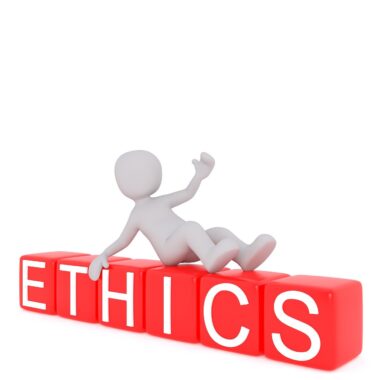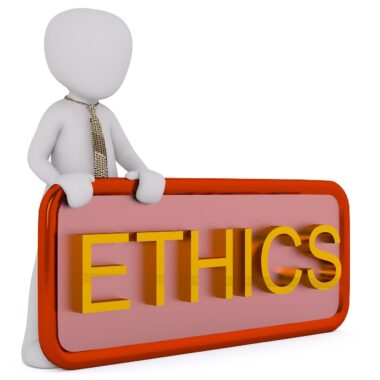The Impact of Ethical Conduct on Audit Quality
Ethical conduct is paramount when it comes to audit quality. Auditors are tasked with objectively evaluating financial statements, and their integrity is crucial in this process. When auditors adhere to ethical standards, they enhance the credibility of financial information presented to stakeholders. Ethical principles guide auditors in maintaining independence and objectivity, ensuring that their judgments are not influenced by external pressures or conflicts of interest. This ethical framework serves to uphold the public interest by fostering trust in financial reporting. Moreover, a strong ethical foundation enables auditors to address potential dilemmas that may arise during an audit. By prioritizing ethical conduct, auditors can safeguard their professional reputation and contribute positively to the overall effectiveness of the audit process. Furthermore, a commitment to ethical behavior lays the groundwork for a culture of transparency within organizations, which benefits all stakeholders involved. Ultimately, ethical conduct in auditing is not merely a regulatory requirement but a vital component that substantiates the quality and reliability of audit outcomes. Auditors must continuously engage in professional development to stay informed about evolving ethical standards.
Building a strong ethical culture within firms is essential for promoting professionalism among auditors. This commitment begins with leadership, as organizations must actively model ethical behavior and create an environment where ethical practices are encouraged. Establishing robust codes of ethics and conducting regular training sessions can significantly contribute to this goal. Auditors who feel empowered to act ethically are more likely to report unethical practices and engage in responsible decision-making. Furthermore, organizations should implement effective reporting mechanisms that protect whistleblowers, allowing auditors to voice concerns without fear of retaliation. Open communication channels foster trust and accountability, essential ingredients in maintaining audit quality. An organization that openly discusses ethical dilemmas faced in the auditing process cultivates an atmosphere where ethical considerations are prioritized. Leadership visibility further strengthens this commitment by signaling to auditors that ethical conduct is valued above all. Additionally, regular assessments of organizational ethics can help identify areas for improvement and solidify ethical standards across the auditing profession. Emphasizing ethical behavior not only protects the organization’s credibility but ultimately enhances public confidence in the auditing profession.
Another critical aspect of auditor ethics involves compliance with relevant laws and regulations. Auditors must be well-versed in the legal frameworks governing financial reporting and auditing, which helps to mitigate risks associated with non-compliance. Understanding these laws enables auditors to identify potential ethical challenges and navigate them effectively, thus upholding the standards set out by regulatory bodies. Furthermore, auditors are required to comply with professional standards, including those established by the International Federation of Accountants (IFAC) and national accounting organizations. Continuous education in these standards is vital for auditors to remain competent and capable of delivering high-quality audit services. Regular updates regarding changes in legislation or regulatory requirements must also be communicated effectively to ensure auditors remain informed. These practices not only reinforce ethical conduct but also promote transparency within financial reporting. Consequently, compliance with legal and professional standards reinforces the vital link between ethics and audit quality. By prioritizing ongoing training and education, firms can equip auditors with the tools they need to navigate complex ethical dilemmas and maintain the integrity of the auditing process.
The Role of Auditor Independence
Auditor independence is directly linked to the quality of audit outcomes. Independence refers to the ability of auditors to act without bias or undue influence from their clients. This autonomy is fundamental for ensuring the integrity of the audit process. When auditors maintain independence, they are better positioned to provide objective assessments of financial statements. A lack of independence can lead to compromised audit results, as auditors may overlook discrepancies or fail to challenge management assertions. To foster independence, auditors must be wary of potential conflicts of interest, which can arise from personal, financial, or professional relationships with clients. Establishing clear policies and guidelines regarding independence can help mitigate such risks. Furthermore, ongoing monitoring of auditor-client relationships assists in identifying situations that could undermine independence. Auditors should consider rotating audit partners periodically to minimize familiarity threats. This approach not only reinforces auditor independence but also enhances the objectivity of the audit process. Accordingly, promoting independence is a critical element of maintaining high audit quality and safeguarding the interests of stakeholders who rely on trustworthy financial information.
In the realm of auditor ethics, the principle of confidentiality also holds significant weight. Auditors are often privy to sensitive information that must not be disclosed to unauthorized parties. Upholding confidentiality fosters trust between auditors and their clients, as it assures clients that their proprietary information will be protected. Breaching this trust can lead to damaging consequences, including reputational harm for both the auditor and the firm. Auditors must navigate the delicate balance between maintaining confidentiality and fulfilling legal obligations, such as reporting fraudulent activities. Establishing clear guidelines on confidentiality can prevent misunderstandings and ensure that auditors operate within ethical boundaries. Regular training and awareness campaigns can further reinforce this principle and underscore its importance in enhancing professional reputation. Additionally, firms need to have stringent measures in place to protect sensitive data and prevent unauthorized access. Embracing an attitude of confidentiality not only strengthens the auditor-client relationship but also assists in promoting high audit quality. By prioritizing confidentiality alongside other ethical principles, auditors contribute to the overall integrity of the financial reporting process and uphold the public trust.
Ethical conduct is also essential for mitigating auditing risks. When auditors adhere to ethical standards, they become more vigilant in identifying potential risks that may impact audit quality. Ethical auditors are more likely to exercise due diligence during the audit process and thoroughly evaluate risks associated with financial statements. This attentive approach can lead to earlier detection of irregularities and potential fraudulent activities. In contrast, unethical practices may obscure significant risks, resulting in unqualified audit opinions that do not reflect the actual financial state of an organization. Furthermore, ethical conduct promotes a proactive stance in addressing risks before they escalate. Auditors who prioritize ethics are more inclined to implement risk assessment procedures and engage in continuous monitoring, thereby elevating the quality of their work. Encouraging a culture of ethical awareness throughout the organization can bolster risk management strategies as well. When all stakeholders understand the importance of ethical behavior, it creates a collaborative effort to uphold audit quality. By fostering an ethical culture, organizations provide the foundation for auditors to perform their duties effectively and mitigate risks inherent in the auditing profession.
Conclusion: Sustaining Auditing Integrity
In conclusion, ethical conduct plays a pivotal role in determining audit quality. Maintaining high ethical standards is not merely an obligation for auditors; it is essential for safeguarding public interest and confidence in financial reporting. As the auditing landscape continues evolving, auditors must remain committed to ethical principles and continuously refine their professional practices. By prioritizing ethical conduct, organizations empower their auditors to act with integrity and objectivity and reinforce the overall credibility of financial reporting. This commitment not only enhances the quality of audit outcomes but also contributes to a culture of transparency and accountability. Moreover, fostering an environment that values ethical behavior can lead to a more robust and resilient auditing profession in the long term. Each auditor’s role is vital in achieving these goals, and organizations must support their continual professional development to navigate the complexities of ethical dilemmas effectively. Therefore, promoting ethical conduct and professionalism within auditing is a shared responsibility among all stakeholders involved. By embracing this commitment, the auditing community can strive for excellence and uphold the standards expected in today’s financial environment.
Ultimately, the interconnection between ethics and audit quality has profound implications for all parties involved in the financial reporting process. Auditors who adhere to high ethical standards contribute to the credibility and reliability of financial information, which directly influences stakeholders’ decision-making processes. As businesses face increasing scrutiny and regulation, the demand for transparent and accountable financial reporting will only grow. Auditors must address ethical challenges proactively and cultivate a deep understanding of their ethical responsibilities. Continuous education and professional development in ethics should be prioritized, ensuring that auditors are equipped to handle complex situations effectively. Furthermore, organizations can foster ethical behavior by implementing practices that encourage integrity and transparency across their auditing teams. By emphasizing the importance of ethics in auditing, firms can position themselves as trusted advisors in the financial market, enhancing their reputation and fostering long-term relationships with clients. As such, the commitment to ethical conduct and professionalism in auditing must never be underestimated. It stands as a vital pillar supporting the overall quality and integrity of the financial reporting landscape. Consequently, both auditors and organizations must recognize their role in cultivating ethical practices.





